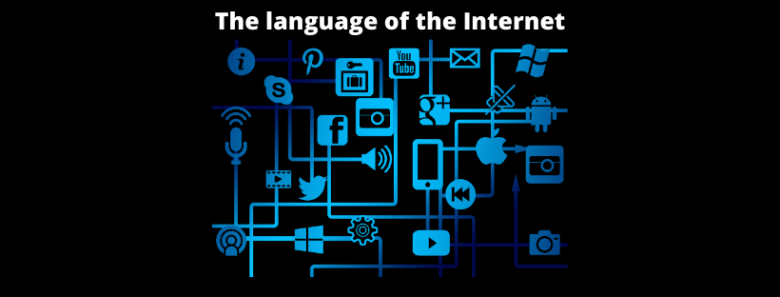It rains a lot in Britain, doesn’t it?
So, it’s quite normal in English to have many different ways to describe the rain.
We may have drizzle if the rain is very light, or a shower if it is a short period of rain, a downpour if it is heavy rain or we can say that it is raining cats and dogs if it is really raining a lot.
If you live in a very hot area, you may not have as many names for the rain as the English language does.
This is in fact how languages work. The people who speak a specific language contribute in inventing new words for things they see very often that maybe others don’t know.
In the past, the Latin language had no words for the colours brown, green or grey. These words entered the Latin vocabulary when the Romans came into contact with tribes from the North, the Celts, or the Germanic peoples, who lived in areas with a higher percentage of woods and forests who, for this reason, had words to describe colours they used to see every day while the Romans didn’t. Names of trees such as birch and beech were new for the Romans who had never seen those plants in the south of Italy before. For the same reason, the word pants entered the Latin vocabulary because of the Celts, who actually used pants or trousers which were completely unknown to the Romans who were more used to wearing togas.
These were all examples of how different places, with specific colours, plants or animals shaped some languages; but now let’s step back in time even further and let’s go to prehistoric times.
There is a theory in Linguistic Anthropology which differentiates language sounds according to space. Have you ever noticed why some Latin languages such as Italian, French, Spanish or Romanian contain several vowels, while languages such as Swedish, German, English or Dutch contain many consonants? Here is the reason why. Try to say out loud the sound “ah” and try to keep the sound as long as you have breath, like this: “aaaaah”. Now, try to do the same with this sounds: “tch”, “p”, “t”. How long were you able to maintain these sounds? Probably for just about a second. Vowels are sounds you can keep saying for a long time, while consonants are explosive sounds which cannot be prolonged in time. People who lived in very hot areas, such as the Mediterranean, needed sounds that could be prolonged in time, so that if your companion was very far from you, he or she could understand you better. The same happened for some languages of peoples living in the Amazon forest or on the Pacific islands. All their languages contained a lot of vowels because the speakers needed sounds that could be prolonged in time so that if they were hunting or very far from one another, they could use words which could actually be shouted for a long period, and be sure that everybody would understand or hear them.
On the contrary, in very cold areas such as Scandinavia for instance, people stayed closer to one another because they needed warmth. For this reason, there was no need to have sounds that had to be prolonged in time, so short sounds such as consonants were more useful. If you live in Italy and speak or know dialects, you may find the same thing: in the North of Italy, near the Alps or in the mountains, people speak dialects with a higher quantity of consonants than people living in the centre or the south of Italy, who use a larger quantity of vowels instead. It is in fact normal to hear a difference in sound between people living in cold places (who tend to have a lower volume of voice) and people living in hotter places (who tend to have a higher volume of voice). All these things happened a long time ago, but these features are still present in today’s languages. But there’s even more to it!
In very small communities of Aboriginal peoples in Australia or Native Americans in the States, it is often very common to find languages where the concept of right and left or north, south, east or west is totally absent. Some of these languages rely on different cardinal points. For example, if you live near a very big mountain you consider to be sacred, you may use it to say over the mountain or below the mountain and that is all you need to say! How crazy languages can be at times!


